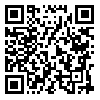BibTeX | RIS | EndNote | Medlars | ProCite | Reference Manager | RefWorks
Send citation to:
URL: http://ijn.iums.ac.ir/article-1-821-en.html
Background and Aim: Diagnosis of cancer and its special treatment produces complications such as anxiety and stress. One the important roles of nurses is managing these complications. This study was conducted to examine the effect of relaxation on anxiety and stress of hospitalized cancerous patients.
Material and Method: This was a quasi-experimental study conducted in 2005 with two groups of cancerous patients at Imam Khomeini Hospital. The subjects were randomly allocated to either experimental (N=30) or control (N=30) group. Patients in experimental group performed relaxation together with researcher for 5 consecutive days in morning within 20-25 minutes. Before and after intervention, the patients’ vital signs (blood pressure, pulse, respiration) were measured and recorded. In control group, patients’ vital signs were measured and recorded only at the time after intervention for experimental group. Data was gathered by a tool including demographic questionnaire and DASS-21. In both groups, anxiety and stress were measured by DASS-21 questionnaire before and after 5 sessions of experimental group. Data was analyzed by SPSS-11.5 using Chi-square and t-student tests.
Results: In experimental group, relaxation decreased the mean score of anxiety from 8.2 ± 4.2 to 7.4 ±4.07 and also decreased the mean score of stress from 11.8±5.7 to 10.6±5.2. In control group, the mean score of anxiety changed from 8.3±4.3 to 9.6±5.4 and the mean score of stress changed from 10.5±5.2 to 11.9±5.4. There was a statistically significant difference between two groups (P≤0.001). Also, the mean scores of systolic blood pressure, pulse rate and respiration rate in experimental group were significantly increased after intervention (p<0.05).
Conclusion: The results showed that cancerous patients can control their stress and anxiety by using non-pharmacologic methods such as relaxationReceived: 2010/08/23 | Accepted: 2014/08/25 | Published: 2014/08/25
| Rights and permissions | |
 |
This work is licensed under a Creative Commons Attribution-NonCommercial 4.0 International License. |


